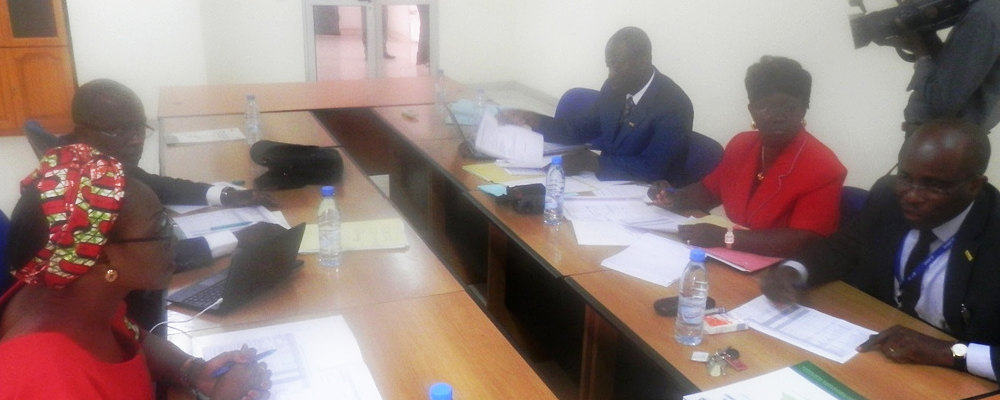In the context of the implementation of a pedagogical reference framework for the Master 2 program at CIESPAC, as from the academic year 2017-2018, the CIESPAC was held on 19/09/2017 to open the validation workshop the pedagogical model of the Master 2 GESS. Placed under the direction of Professor Pierre Marie TEBEU,
this first day focused on the presentation of the pedagogical support project coordinated by experts from the School of Higher Studies in Public Health (EHESP) and supervised by Expertise France.Y took part, Anne Anne BEUGNY, representative of Expertise France , the CIESPAC executives, a representative of the Directorate General of Hospitals and the organization of care, as well as a representative of the consulting teachers.
The presentation by Professor Christophe VAN DER LINDE, Project Coordinator, was sequenced in three parts :
The first part focused on the pedagogical model used by EHESP. This model highlights the training process in three distinct and complementary levels :
- Training through competence development, where competence is to be understood as "a certain way of acting, recognized as effective, achieving a socially anticipated result in a homogeneous set of situations", see " anticipate situations in a given context by mobilizing resources to adapt, regulate, direct its actions and act in its environment ". Here, a large place is reserved not only for the influence of professional didactics and the dynamic process of adapting the activity to situations, but also to professional situations having the same purpose, the same characteristics (tasks, classes of situations) as well as the expected performance ;
- Learning through reflexive analysis, ie "I do, I analyze (I write), I learn". Here, the approach implemented during the different training periods is successively: the assessment of competencies, the lessons learned (constructed situations), the support work, the internship and the dissertation..
- Develop commitment to training through personalization and accountability (contracting).
Continuing on this last level, Professor Vander Linde emphasized that in the process of personalization, the learner was led to ask the following questions :
- Where am I? (balance sheet, positioning)
- Where should I arrive? (skills repository)
- What resources do I need? (individual project in general, and for the course in particular)
- After the presentation of the pedagogical model, the exchanges focused on the operationalization of the method in the framework of the specific support to the CIESPAC of the EHESP, see in a broader framework of the project financed by the Agence Française Development (AFD) to strengthen the capacity of hospital professionals in the Republic of Congo







